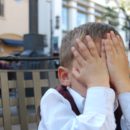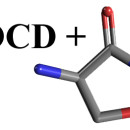OCD Treatment: OCD vs. Me. How do I Tell the Difference?
Question: Because many of my OCD rituals are related to my professional identity, I’m worried that changing my rituals will somehow change those parts of me that I like (e.g., my personal goals and ambitions). Should I be concerned about this? Early Onset OCD in Kids & Teens (Pediatric OCD) Many people worry that by fighting their OCD, they will lose essential parts of themselves. This is particularly true for adults with obsessive compulsive disorder, who have had to deal with OCD for most of their lives. Because OCD often begins early in childhood and can have a chronic course, it can be difficult to separate yourself from your OCD symptoms. In many pediatric OCD cases, kids with OCD exhibit symptoms by age 10. Shockingly, in certain cases, even toddlers can show clinical signs of obsessive-compulsive disorder. There are...
Read MorePure-O OCD Rituals: Starting Over, Resetting, & Undoing
Question: It’s hard to describe this, but I feel like every few days I need to mentally “start over” by doing a variety of mental and behavioral rituals. I don’t want to live like this, but I’m afraid that if I undergo treatment and stop my OCD rituals, I won’t be the same person with the same drives. Starting Over, Resetting, & Undoing Compulsions in OCD First, please rest assured that you’re not alone in experiencing these symptoms. Many people with OCD (“Pure-O” or otherwise) refer to them as “starting over” compulsions, “resetting” compulsions, or “undoing” compulsions, which serve the function of returning to a clean mental slate. Sometimes these compulsions consist of particular movements, self-statements, mental activities, or complex rituals with both behavioral and mental components. They are not as common as other types of rituals (e.g., washing,...
Read MoreHealth-Related Anxiety: Symptoms, Disorders, & Treatment
Think about the most significant health scare you have ever experienced. Then multiply this experience by a factor of about 10. Unfortunately, this is a daily reality for many individuals suffering from health-related anxiety, a debilitating condition that can have devastating effects on one’s mood, relationships, and ability to function in academic and professional settings. What is health anxiety? Health-related anxiety is a general term that refers to intense fear or worry about one’s physical health. Fear about illness (or potential illness) might develop in situations in which an individual has a diagnosed medical illness. These health conditions might include: a diagnosed, progressive medical condition (e.g., worry about advancing symptoms of Alzheimer’s disease). a diagnosed medical condition that requires management and/or health behavior changes (e.g., anxiety following a diagnosis of diabetes or after experiencing a heart attack). a diagnosed...
Read MoreAgoraphobia – Symptom Attacks, Triggers, Panic, & Avoidance Behaviors
Let’s dispel a common misconception about agoraphobia. Agoraphobia is not a fear of the outdoors. Many people mistakenly believe this myth, due to the word’s Latin roots. Because agoraphobia can be broken down into the roots agora (“marketplace”) and phobia (“fear of”), many people assume that agoraphobia is a “fear of the marketplace” or a fear of being in wide open spaces. What is agoraphobia? However, this literal interpretation is different than what psychologists mean when they use the term agoraphobia. Clinical psychologists, therapists, and psychiatrists conceptualize agoraphobia as a fear of experiencing physical symptom attacks in certain types of situations (Zuercher-White & Pollard, 2003). Symptom attacks include full-blown panic attacks, limited symptom panic attacks (sweating, dizziness, disorientation, difficulty breathing. heart pounding, nausea), diarrhea, other gastrointestinal (GI) issues, vomiting, headaches, and feelings of dissociation, depersonalization, or derealization. Agoraphobia-related Situations The...
Read MoreSocial Anxiety Treatment: CBT & Intentional Mistake Practice (an example)
When I was a kid, one form of mischief that was briefly popular in my neighborhood was crank calling strangers. Usually, the bravest kid in the group would pick up the phone, and with the encouragement of all the other kids in the room, would dial a random telephone number. A brief, very Bart Simpson-esque conversation would then ensue. Usually it would go something like this: Kid: Hello, ma’am. I am conducting a brief survey for the Grocer’s Association. Do you have a minute to answer a quick question? Stranger: Of course. How can I help you? Kid: I was wondering if you have Sara Lee in the freezer. Stranger: Why, yes I do. Kid: Well then let her out!!! We would then bust out in laughter and hang up the phone, leaving the recipient of our phone call...
Read MoreOCD & D-cycloserine: A Promising Medication for OCD Treatment
As someone who has long been enamored with basic science, I find it fascinating when classic medications are re-purposed in surprising ways. One of the newest examples of this is the use of D-cycloserine (also known as Seromycin) in the treatment of obsessive-compulsive disorder (OCD). What’s interesting about D-cycloserine is not so much what it is…but what it isn’t: D-cycloserine is neither an SRRI nor any other type of antidepressant (e.g., Prozac). It’s not an anti-anxiety medication (e.g., Xanax, Klonopin). It’s not even an atypical antipsychotic (e.g., Abilify, Risperdal). If it’s not one of the above, then what is it? The answer might surprise you. Seromycin is actually an antibiotic that was originally developed to help fight off tuberculosis. What’s exciting about using an antibiotic to treat OCD is that it’s not subject to the same side effects as other medications (i.e., the SSRIs,...
Read More








